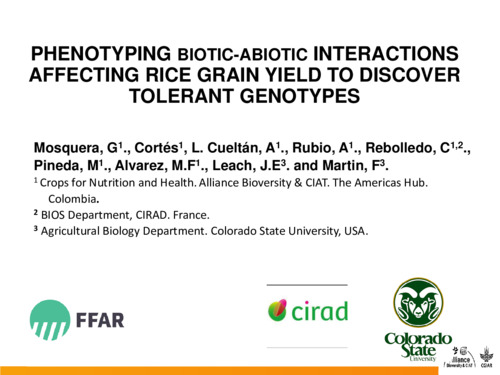Phenotyping biotic-abiotic interactions affecting rice grain yield to discover tolerant genotypes
High temperatures are known to exacerbate rice panicle blight caused by Burkholderia glumae. Our long term goal is to develop rice with increased tolerance to combined heat and disease stresses. Our first steps have been to develop a robust experimental system to test how heat stress tolerance interacts with B. glumae infection. A set of rice genotypes with contrasting tolerance to heat was inoculated with B. glumae at anthesis stage. Genotype response to bacterial infection was measured by quantifying the proportion of empty spikelets as well as the total number of grains obtained from inoculated panicles. Preliminary results identified promising rice genotypes that can tolerate heat stress and the infection by B. glumae separately. These rice genotypes will be valuable for studying the molecular mechanisms responsible for tolerance and enable development of new rice varieties that withstand combined stresses under field conditions.

